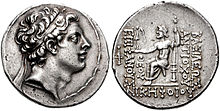January 4, 2016
Post #10
Dear Readers,
We are dedicated to the absolute co-equality and balance between men and women! Our premise is that God created us this way to be whole, complete, unified – as One, through one another, masculine and feminine. We are discussing how the Word of God as taught by Jesus of Nazareth was willfully or inadvertently misrepresented or misunderstood such that men came to believe they were somehow more equal.
This weblog, our pamphlets, study guides and other materials are inspired by Miguel’s book, The Word 2.0, a new biography of Jesus of Nazareth in his own words, based upon a single, unified timeline.
Whether or not you agree please “share” us with your friends, and be our “friend”!
You are reading one in a year-long series on the “Feminine-ist” teaching of Jesus of Nazareth.
~~~~~~~//~~~~~~~
God is One!
God is undifferentiated masculine and feminine energy in perfect balance, whole, complete, unified, and co-equal! God is neither male nor female, and yet both – inseparable! And yet God made each of us manifest male and female, man and woman, in God’s perfect likeness! Truly a state of grace.
How Adam’s actions brought about the fall from this state of grace is something we will discuss elsewhere. Suffice it to say that long before Jesus was born, men and women were already out of balance. In the more immediate sense of events which took place in Israel before Jesus was born, I found the Seleucid Greek invasion critically important because of the belief system we call “Hellenism” the Greeks forced on the children of Israel at that time.
It may not be especially well known today but the Seleucid Greeks from Syria outlawed our One True God! They forbade the worship of God under the penalty of death. Their King Antiochus IV Epiphanes (Antíochos D’ ho Epiphanḗs, “God Manifest”), believing he was god, decreed the people would have no other god before him.
Hellenism did cause divisions among the people though. On one hand identifying with the Greek empire and culture could enrich certain elite Israelites, but on the other hand their man-worship violated God’s Law. This divided not only those who were “Hellenists”, their supporters and adherents, from those who were “Traditionalists“, but also, apparently, men from women. Why? Because it is also in the nature of Hellenism that women be subordinate to men.
But our One True God was definitely not a Hellenist, right? Given that, Jesus was not a Hellenist – quite the opposite. We might characterize Jesus’ ministry as anti-Hellenist – teaching men in particular about the Divine Balance of God’s Feminine and Masculine aspects, specifically “Feminine-ism“. I briefly outline some basic principles of Jesus of Nazareth’s life and ministry, as they are revealed in “The Word 2.0”:
1. Jesus was a “Traditional” Hebrew-Jewish teacher and Rabbi – to say the very least!
2. Jesus was not a “Hellenist” in any sense of our understanding the word.
3. Jesus espoused and promoted that our One True God – the God of Israel, is a perfect co-equal balance of both masculine and feminine, as is reflected in all Creation.
4. Jesus said that we must love the Lord our God first and foremost, and then love one another as we love ourselves.
5. Jesus taught that love, beginning with God’s “Ruach HaKodesh” – the Breath of Life and Holy Spirit, as aspects of God’s Divine Feminine, is the only way that men can experience the Kingdom of God.
6. Jesus rejected the kind of egocentric, selfish, self-centered thinking and behavior of men that characterizes “Hellenism”.
We will discuss each of these points in much greater detail as we continue, and, look for my study guides they will soon also be available!
~~~~~~~//~~~~~~~
~~~~~~~//~~~~~~~
We were speaking of the disciples themselves – those men closest to Jesus throughout his ministry, as men whose faith in God wavered. Being Jewish, they knew and understood God, their religion, and its practice. They were indeed staunch believers these men whom Jesus had chosen to work with him. So it must be natural and normal for men to question their faith. We find that they need not have been Hellenists, or had Hellenistic leanings, to experience fear, frustration, doubt, even crisis of faith as these men did constantly. In fact, on the night following his “Last Seder” with the disciples, in the Garden of Gethsemane, Jesus himself questioned God’s plan, saying:
“Abba, Father – all things are possible for you. If it is possible, take this cup away from me. Nevertheless not what I will, but what you will.” (Page 358.)
What does seem to distinguish this Traditionalist point of view is not whether or not a man experiences doubt. Being a man himself, Jesus suddenly wonders about the uncertainty of coming events; whether it is necessary for him to undergo such trials and tribulations. But he does not place himself or his ego or his self-will before God. He does not forsake God, so to speak, in order to pursue his personal agenda. Indeed, he exemplifies the necessity for each and every man to die to self-will in order to be born again in Spirit. This simple prayer could not be more profound nor more elegantly spoken:
“Thy will be done.”
When we say that each and every man must die to self-will, we are of course discussing more than just the kinds of egoic, self-willed impulses, thoughts, modes of speech, and actions that characterize typical male selfishness. It goes to the twisted logic, reasoning, rationalizations, explanations, and justifications that characterize Hellenism. It goes to men’s self-idolatry, self-absorption, and egoic pursuit of self-gratification as their principle preoccupation. Indeed it goes to men thinking even believing they are more important, better, smarter, stronger, worthy to tell women what to do. That women should worship men, as men worship one one another. That their very impulses, ideas, words and action are gospel everywhere, especially at home.
There is much to be said about each of these things, so as you read the book, pay close attention to the men Jesus meets and interacts with!
Love & Light!
Miguel






